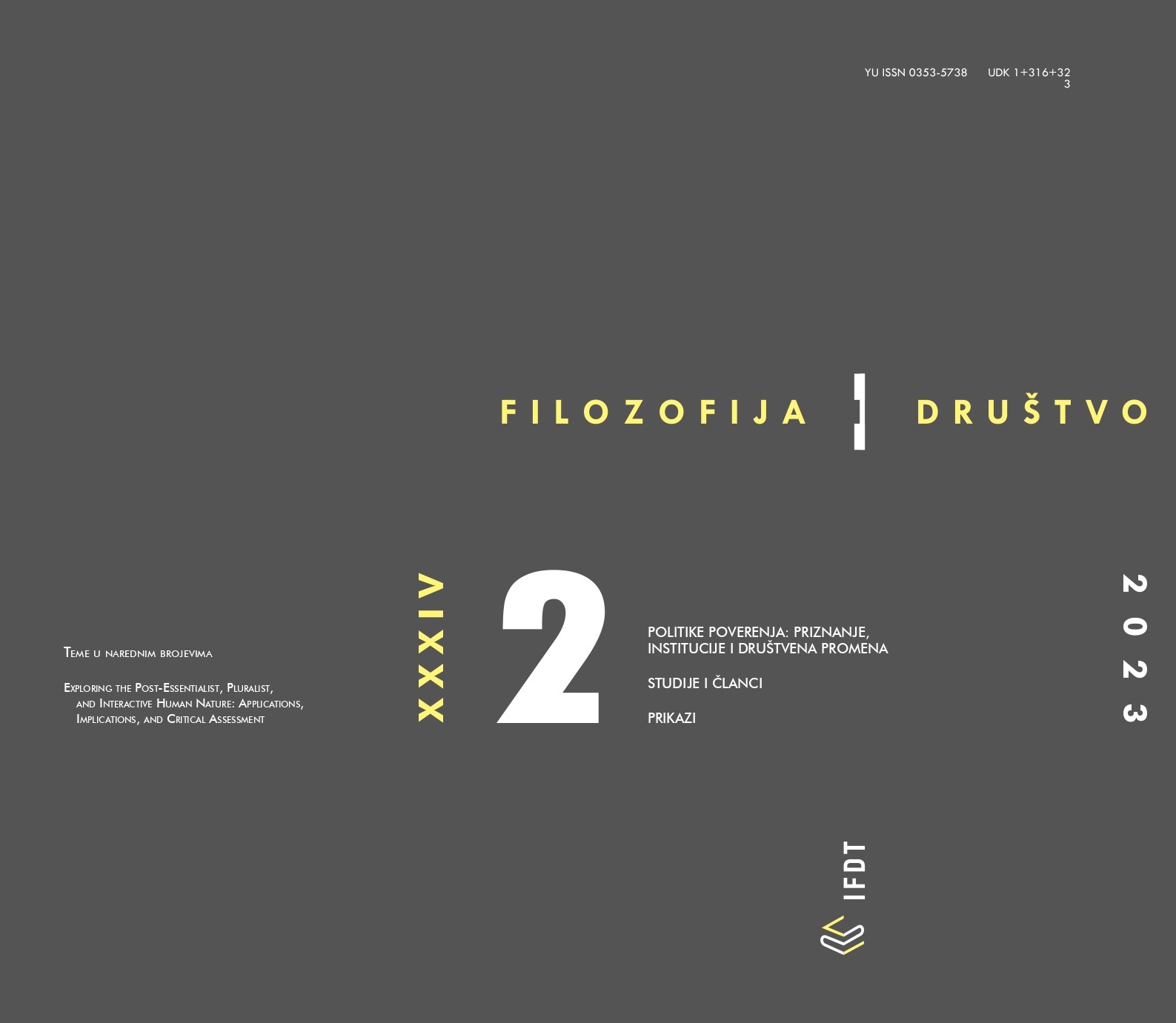TRUST AND “BEING MOVED” AS FORMS OF ENGAGEMENT IN SITUATIONS OF UNCERTAINTY
TRUST AND “BEING MOVED” AS FORMS OF ENGAGEMENT IN SITUATIONS OF UNCERTAINTY
Author(s): Igor CvejićSubject(s): Social Sciences, Psychology, Social psychology and group interaction
Published by: Institut za filozofiju i društvenu teoriju
Keywords: engagement; trust; being moved; uncertainty; emotion
Summary/Abstract: The main aim of this paper is to put emphasis on the role of trust and the emotion of being moved in a situation of crisis. I do not intend to address the general role, or all roles, these emotions might have in a crisis situation. My focus is rather on the role of these emotions in we-formation, presupposing that mutual engagement between the actors is the crucial constituent through which first-person singular shifts to first-person plural. I rely on Bennet Helm’s argument on how trust can function as an invitation to delineate communal norms in the new circumstances of uncertainty. Accordingly, by being trusted by other(s), the addressee is entitled to the expected responsibility for a situation: (1) the addressee is entitled as a member of a group (of us who are responsible in the situation); (2) the addressee is exposed to pressure to respond to a situation with responsibility. In the second part, I adopt Cova’s and Deonna’s argument about the function of the emotion of being moved. I suggest that in such a situation “being moved” expresses the readiness to reorganize one’s hierarchy of values in the light of new circumstances of mutual dependency. Taken together, trust and being moved portray the outline of mutual engagement between the actors in a crisis situation which aims to establish new communal norms and values.
Journal: Filozofija i društvo
- Issue Year: 34/2023
- Issue No: 2
- Page Range: 248-256
- Page Count: 9
- Language: English

